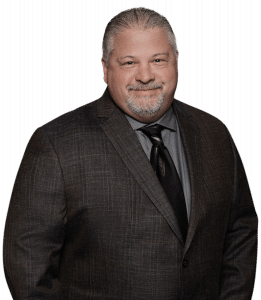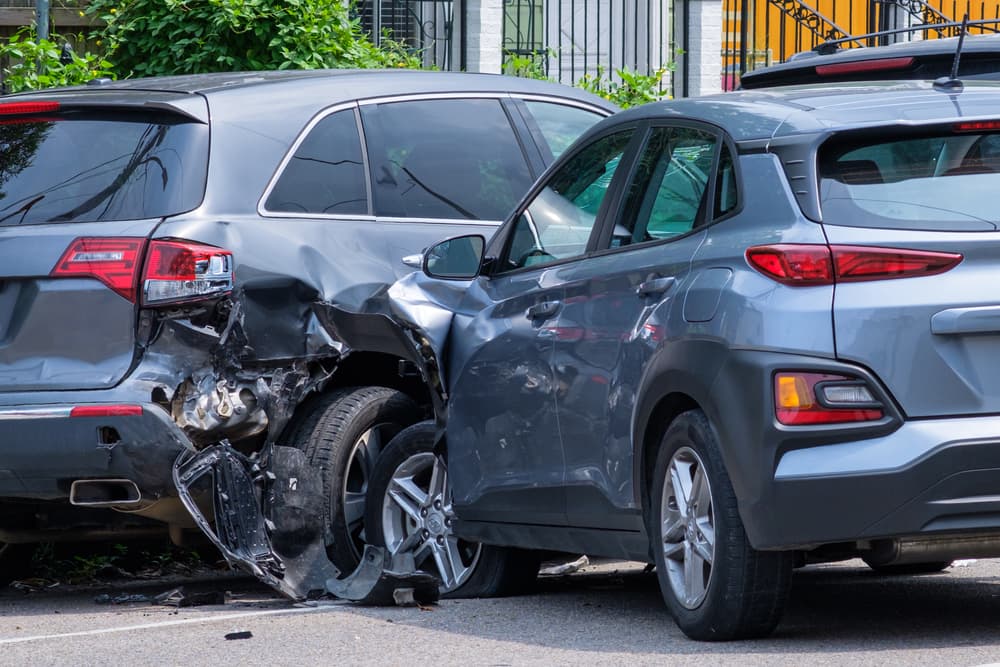There are many different types of head and brain injuries that an accident victim may suffer. Many of these injuries have long-term effects, some of which are permanent. Traumatic brain injuries, or TBIs, can also result from various accidents and occurrences. These accidents often happen because another person is careless, negligent, or reckless under the circumstances. When that happens, the at-fault party and their insurance company may be liable for the accident victim’s injuries and damages.
You are not alone if you or a person you love suffered a TBI due to another person’s negligence. In addition to seeking prompt medical treatment as soon as possible after your accident, you should talk with a knowledgeable brain injury attorneys in your area. Your lawyer can explore your legal options and help you decide your case’s best course of action.
In addition to investigating the circumstances of your accident, your lawyer can determine if you are eligible to pursue a claim or lawsuit for damages. If so, your lawyer can assist you with every step of the process—including settlement negotiations. If the insurance company refuses to offer you full compensation, your lawyer can file a lawsuit and, if necessary, take your case to a jury trial or binding arbitration. Your lawyer will do everything possible to ensure you recover the damages you deserve for your TBI and its consequences.
Types of Brain Injuries
A TBI is a head injury that impacts the brain’s ability to function properly. In some instances, TBIs occur because of a strong impact on the accident victim’s head. At other times, they happen when a sharp object penetrates the accident victim’s head or skull.
When an accident victim forcefully strikes their head on a hard surface in an accident, the impact may disrupt the brain’s neurons and axons, which act as the brain’s internal hardware system. This, in turn, may result in various symptoms, including loss of concentration, memory loss, and an inability to communicate. In serious cases, the injury victim can wind up in a wheelchair or permanently unconscious.
Some TBI victims experience a serious or chronic headache from their head impact. The headache might occur in the front portion of the accident victim’s head or radiate down the back of their neck. While some headaches only last a day or two after their accident, some victims develop chronic headaches or migraines that continue for many weeks or months.
Besides headaches, an accident victim may also suffer a concussion. A concussion, or a brain bruise, happens when the force of an impact causes an accident victim’s brain to move around inside their skull. The brain might strike the side of the skull, causing them to black out for several minutes or experience a brief state of confusion or disorientation. In some instances, concussion victims experience headaches and short-term memory losses.
In more serious accidents, victims can suffer debilitating traumatic head and brain injuries. Their brain damage might become so severe that they suffer long-term memory losses or a permanent inability to remember past events. Some victims even wind up in a coma or permanent vegetative state, necessitating life support. Occasionally, accident victims cannot care for themselves and must rely upon others for round-the-clock care at a nursing home or assisted living facility.
Other types of brain injuries include:
- Skull fracture – The skull can fracture like any other bone. Skull fractures can cause disfigurement, and bone fragments can injure the brain tissue.
- Coup-contrecoup – Some force can cause your brain to bounce and hit your skull in multiple places. This injures the spot of impact and the opposite side of your brain.
- Diffuse axonal injury – This type of brain injury involves the tearing or shearing of the brain nerve fibers.
If you or a person you care about suffered a brain injury due to another person’s negligence, contact an experienced personal injury lawyer in your area right away. In addition to investigating the circumstances, your lawyer can determine your eligibility for filing a personal injury claim or lawsuit. If you are eligible, your lawyer will file the claim with the appropriate insurance company on your behalf—and work to recover the compensation you deserve for your TBI.
Need a Lawyer?
Reach out to the Lucas, Macyszyn, and Dyer Law Firm team to begin your consultation. We pride ourselves on providing exceptional case results and giving you the peace of mind you deserve.
How to Get the Medical Treatment You Need?
After an accident injury, some victims are unaware that they suffered a TBI. This is because symptoms do not always manifest immediately. If you experience any pain or discomfort, you must receive proper medical treatment at a hospital emergency room or local urgent care center.
The medical provider on duty can order the necessary MRIs and brain scans to ascertain your medical condition. If the provider determines you suffered a TBI, you can start treatment immediately. Untreated TBIs usually become much worse as time progresses.
In addition to seeking prompt medical treatment after your accident, you should follow through with your doctor’s treatment recommendations and treat continuously for your injuries. Accident victims who do not receive prompt medical treatment—or skip medical appointments—are less likely to recover the compensation they deserve. Insurance company adjusters assume that accident victims who delay or skip medical treatment did not suffer serious injuries. They may also believe you did not take your treatment seriously and offer you less money to settle.
While you focus your attention on getting better, your lawyer can draft a settlement demand letter and begin gathering up your medical records, bills, and lost wage documents to present to the insurance company after you finish treatment. Your lawyer can then begin negotiating a favorable settlement on your behalf.
How do Brain Injuries Occur?
TBIs can occur under various circumstances, but in many instances, they happen when someone else is negligent.
The most common causes of TBIs include sports injuries, medical negligence, motor vehicle accidents, bicycle and motorcycle accidents, pedestrian accidents, defective products, and slip and fall occurrences.
- Motor vehicle accidents – Motor vehicle accidents typically occur when drivers operate their vehicles negligently or carelessly. They might fail to follow a rule of the road, such as by speeding, failing to yield the right-of-way, tailgating, or engaging in reckless driving. At other times, a driver might fail to pay attention to the road or operate their vehicle while under the influence of alcohol or drugs. When drivers behave negligently, they significantly increase their chances of causing an accident. The force of an impact may cause an accident victim’s head to strike something in the vehicle, such as the door frame, driver’s side window, steering wheel, or dashboard, leading to a serious TBI. In the most serious motor vehicle accidents, the impact force might eject a driver or passenger from their vehicle, causing them to suffer a TBI after striking the ground.
- Bicycle and motorcycle accidents – Cyclists are at a significant disadvantage compared to car drivers and passengers. Unlike the occupants of an enclosed vehicle, cyclists do not have an outer shell surrounding them if they become involved in a crash. If the impact force knocks cyclists to the ground, they might strike their heads and suffer a serious TBI. These injuries can happen even when cyclists wear helmets while riding. Helmets can crack, and some helmets are not durable, leading to serious head injuries when a crash happens. Although some motorcycle and bicycle accidents result from roadway defects, they can also occur when drivers are negligent or reckless. When a car or truck strikes a motorcycle or bicycle, the cyclist almost always suffers more serious injuries.
- Pedestrian accidents – Pedestrian accidents can happen on sidewalks and roadways—or in a parking lot or garage. These accidents usually occur when drivers fail to use their rearview and side view mirrors and do not watch the road. The force of an impact may knock a pedestrian to the ground, causing them to strike their head, neck, or back and sustain a serious TBI.
- Defective products – Product manufacturers and designers must act reasonably. They must use the proper protocols when constructing and designing their products and test their products appropriately before making them available to the public for purchase. If a product explodes or malfunctions when a consumer uses it correctly and they suffer a TBI or other injury, the victim can bring a legal claim against the manufacturer, designer, or distributor.
- Slip and fall accidents – Property owners must maintain their premises in a reasonably safe condition at all times. This includes warning about or repairing known dangerous conditions on the premises and inspecting their properties for unknown defects. When property owners fail to take these precautions, slip and fall accidents can occur. If a property visitor strikes their head on the ground, they can suffer a serious TBI. When that happens, they may have a legal claim against the negligent property owner.
- Sports injuries – Children who play contact sports, like football and basketball, are especially prone to TBIs. These injuries can happen when a student falls to the ground and strikes their head. Coaches, teachers, and other adults are responsible for recognizing the symptoms of concussions and other TBIs—and ensuring that injured students receive prompt medical treatment. When they fail to recognize the signs and symptoms or neglect to obtain medical treatment for a student, parents can hold them—along with the board of education that employs them—responsible.
The specific issues and questions that apply to your injury claim will depend on the accident that caused your brain injury.
For example:
- Claims stemming from commercial truck accidents can involve highly technical evidence and investigations.
- Slip and falls involve claims against corporate insurance companies, as well as complex liability issues regarding whether the business knew of the property hazard.
- Sports injury claims might be against school districts or other public entities.
In many cases, multiple parties might be liable for accidents and TBIs, and you need to ensure you file all of the necessary claims. Always seek help from a law firm that handles your type of accident claim. Your lawyer knows how to obtain maximum compensation for your past and future losses due to your brain injury.
Recovering Damages for a TBI
The damages an accident victim can recover for a TBI will depend upon various circumstances, including how the accident happened, the type of TBI they suffered, the cost of their medical treatment, and whether or not their injury is permanent. To establish that a TBI is permanent, a medical expert must state—to a reasonable degree of medical probability—that the accident victim’s pain and symptoms will remain for their lifetime.
First, TBI victims can pursue monetary compensation for their related medical expenses and lost wages.
They can also recover non-economic damages for their:
- Mental distress
- Pain and suffering
- Permanent disability
- Lifetime care costs
- Lost quality of life
- Loss of the ability to use a specific body part(s)
- Loss of spousal companionship or consortium
An experienced personal injury lawyer in your area can review your accident circumstances and injuries with you and determine which of these damages you’re eligible to pursue. Your lawyer can then file a claim her lawsuit on your behalf and work to maximize the monetary recovery you receive for your TBI.
Contact a Knowledgeable Personal Injury Lawyer about Your TBI Today

If you or someone you care about suffered a TBI in a negligence-related accident, you have legal options. Once you contact a personal injury lawyer, they can start working on your case right away.
Your lawyer can retain the necessary experts to help you prove your TBI claim. They can also start negotiating with the insurance company adjuster. If the insurance company refuses to compensate you appropriately for your TBI, your lawyer can file a lawsuit, litigate the case in court, and, if necessary, take it to trial or arbitration.
Your lawyer will do everything possible to help you recover the full and fair compensation you deserve.



